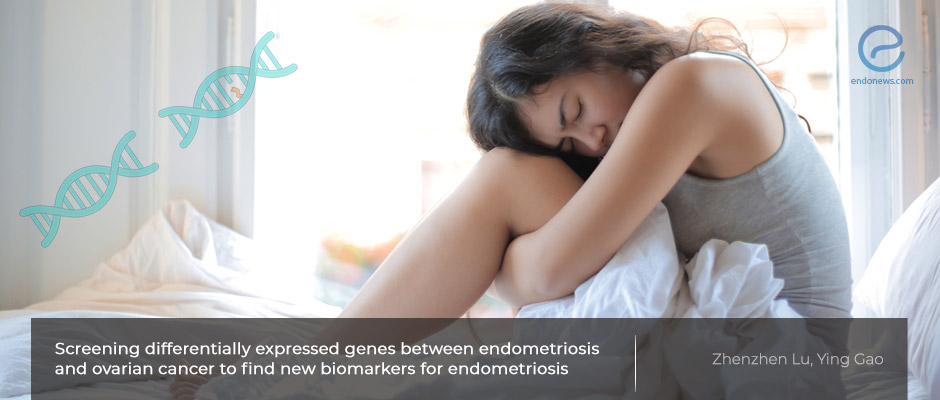Research Identifies New Genes That Could Be Targeted to Treat Endometriosis
Oct 5, 2021
More research is needed to understand the exact role of these genes in endometriosis.
Key Points
Highlights:
- Three new genes that could be involved in the invasiveness of endometriosis, and one new gene that could be related to its recurrence have been identified.
Importance:
- The new genes could be novel therapeutic targets for endometriosis.
What's done here:
- Differentially expressed genes between endometriosis and ovarian cancer were examined to identify new biomarkers for endometriosis.
Key results:
- TGA7, ITGBL1, and SORBS1 genes are associated with cell proliferation, invasion, and migration; and seem to be involved in the invasiveness of endometriosis.
- IGHM gene could be related to the recurrence of endometriosis.
- Above four genes may be therapeutic targets for endometriosis.
- hsa-miR-6745 may be a potential prognostic biomarker.
Limitations:
- The role of these new genes in endometriosis must be further investigated.
- Any drugs targeting these genes must be validated using appropriate tools and animal studies.
Lay Summary
Researchers identified three new genes that could help understand the invasiveness of endometriosis. They also identified one new gene that could be related to the recurrence of the disease. These genes may potentially be new therapeutic targets for endometriosis.
In order to find new biomarkers and therapies for endometriosis, two researchers from the University of Science and Technology in Wuhan, China, researchers analyzed the common characteristics of endometriosis and endometriosis-related type ovarian cancer by screening differentially expressed genes between the two diseases.
Endometriosis is one of the most common diseases affecting the female reproductive system. However, it is still not known what causes it and how it progresses. Therefore, new biomarkers of the occurrence and progression of the disease are urgently needed.
Here, Drs. Lu and Gao downloaded four endometriosis and one ovarian cancer dataset and identified differentially expressed genes between the two diseases. They conducted gene ontology, Kyoto encyclopedia of genes and genomes pathway, and protein-protein interaction analyses. They then validated gene expression, performed survival analysis, and searched for potential drugs in the drug-gene interaction database. Finally, they analyzed the miRNAs of key genes to find potential biomarkers that may be associated with endometriosis recurrence.
One-hundred and four genes were identified in the endometriosis datasets. Most of these genes were associated with cell adhesion, extracellular exosome, and actin-binding. The researchers also identified 50 genes that were differentially expressed between endometriosis and ovarian cancer. One of these genes, IGHM, was strongly expressed and associated with survival. It could, therefore, be related to the recurrence of endometriosis. IGHM is known toplay a role in the immune system but there have been no studies on it in the reproductive system. The researchers also suggested that ITGA7, ITGBL1, and SORBS1 gennes may be associated with cell proliferation, invasion, and migration and be involved in the invasiveness of the disease.
Finally, when the reserchers compared the miRNAs, they observed that hsa-miR-6745 was the only miRNA expressed both in ITGA7 and ITGBL1 genes. The researchers concluded that hsa-miR-6745 overexpression may be associated with poor outcomes and high recurrence of endometriosis. “hsa-miR-6745 may be a potential miRNA biomarker,” they wrote. The details of article can be found in the December 2021 issue of "Annals of Medicine".
Research Source: https://pubmed.ncbi.nlm.nih.gov/34409913/
biomarker miRNAs invasiveness endometriosis recurrence therapeutic target differentially expressed genes

